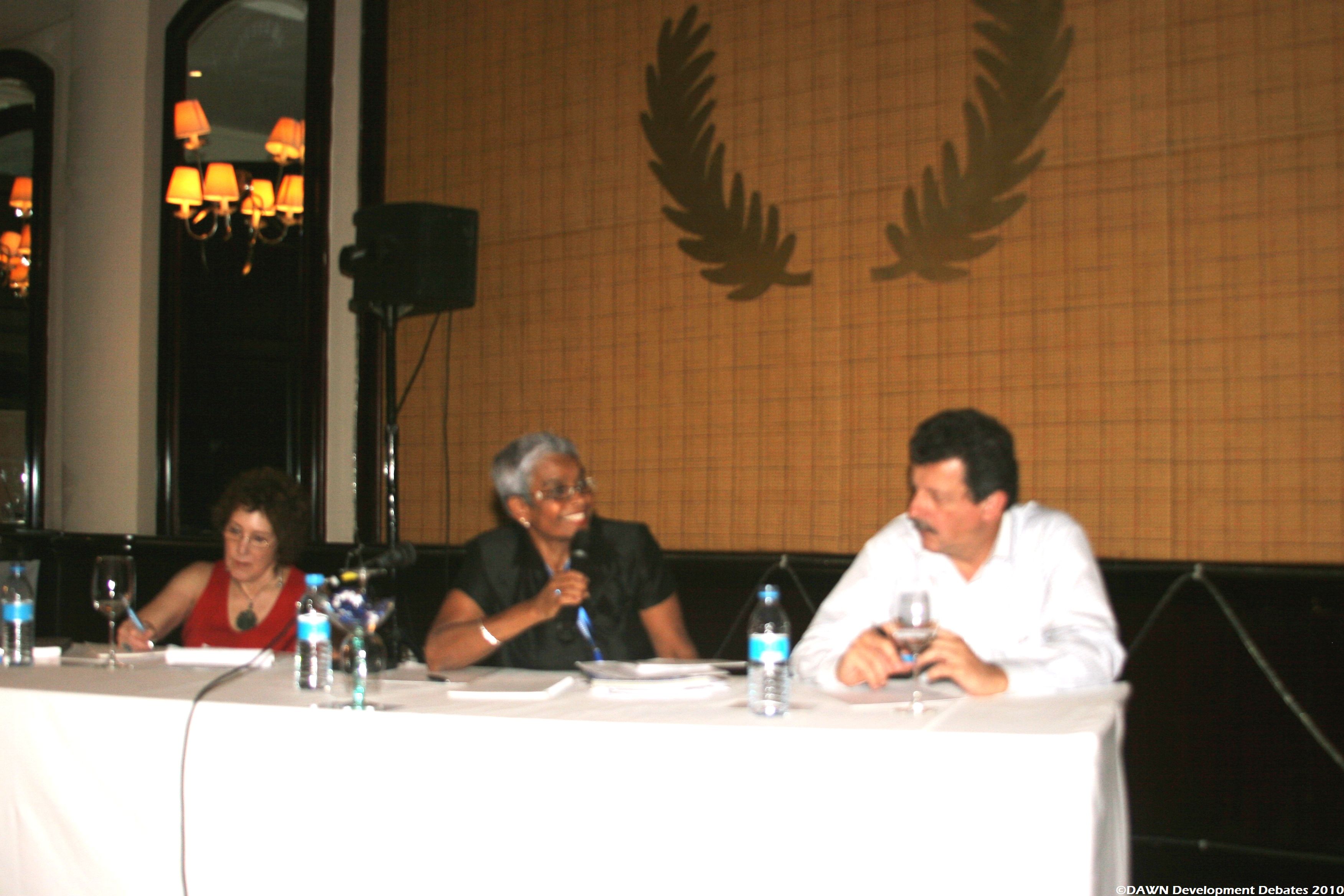Social Watch news
|
Published on Mon, 2010-02-22 09:51
After ceding to pressure from NGOs around the world, the International Monetary Fund opened up its process of investigating the possible impacts of a global Financial Transactions Tax (FTT). NGOs working on finance and development issues are currently preparing written commentaries and will be participating in face-to-face meetings with Fund officials to advocate for the implementation of the tax. The possibility of turning the vision of Keynes and Tobin into concrete financial policy is now more palpable than ever. Civil society must keep up the pressure. |
|
Published on Mon, 2010-02-22 09:45
In this edition of Spotlight On… we will travel to Central America, where the national Social Watch coalition in El Salvador has succeeded in monitoring economic, social and gender rights in the country from diverse perspectives. |
|
Published on Mon, 2010-02-22 09:40
According to the World Bank, in January 2010 there were 1.5 billion people living in extreme poverty. Thus, the goal of reducing poverty and hunger to half by 2015 — the first of the Millennium Development Goals (MDGs) — will be impossible. Furthermore, the lack of significant progress on trade, debt, aid and technology transfer (goal 8) prevents the creation of an adequate environment to achieve the objectives 1 to 6. |
Published on Tue, 2010-02-09 08:11
"Il Ruolo dell’Italia nella governance mondiale: tra delusioni e speranze della società civile” |
|
Published on Thu, 2010-02-04 21:17
Dear Mr Lamy, We appreciated your speech of 13 January 2010 and willingness to engage in a discussion on the contested and controversial relationship between human rights and trade during the 11-13 January 2010 Colloquium on Human Rights in the Global Economy, co-organized by the International Council on Human Rights and Realizing Rights in Geneva. |
|
Published on Fri, 2010-01-22 12:45
|
|
Published on Wed, 2010-01-20 13:01
|
|
Published on Mon, 2010-01-18 13:01
After many years of indiscriminate mortar shelling and endless human rights abuses, the poor people of Somalia are left with little hope or expectations of peace and stability. The destruction that has been inflicted on the Somali people is unprecedented in the recent history of Africa as the perpetrators are rarely called to account for their crimes. |
|
Published on Sun, 2009-12-20 15:44
|
|
Published on Wed, 2009-12-16 17:29
In 2010 at the United Nations, in New York, many events have gender and women’s rights as their theme or are solely focused on gender. These occasions provide an important thread of continuity for Social Watch’s work on gender and women’s rights. While these events are diverse in their nature all have significant importance to gender issues and to the status of women at the international level. |
SUSCRIBE TO OUR NEWSLETTER


 The impact of trade liberalization on the realization of human rights
The impact of trade liberalization on the realization of human rights Originally published in YES! Magazine
Originally published in YES! Magazine Roberto Bissio, coordinator of Social Watch, spoke at DAWN's Development Debates 2010. The panel organized by Development Alternatives with Women for a New Era (DAWN) took place on January 19th 2010 at Mauritius, Africa. It also counted with the participation of Rosalind Petchesky who talked about Gender Identity, Sexuality and Feminism, and Rodelyn Marte that made a presentation on HIV/AIDS and Women.
Roberto Bissio, coordinator of Social Watch, spoke at DAWN's Development Debates 2010. The panel organized by Development Alternatives with Women for a New Era (DAWN) took place on January 19th 2010 at Mauritius, Africa. It also counted with the participation of Rosalind Petchesky who talked about Gender Identity, Sexuality and Feminism, and Rodelyn Marte that made a presentation on HIV/AIDS and Women. Source: IFIs Latin American Monitor
Source: IFIs Latin American Monitor 
